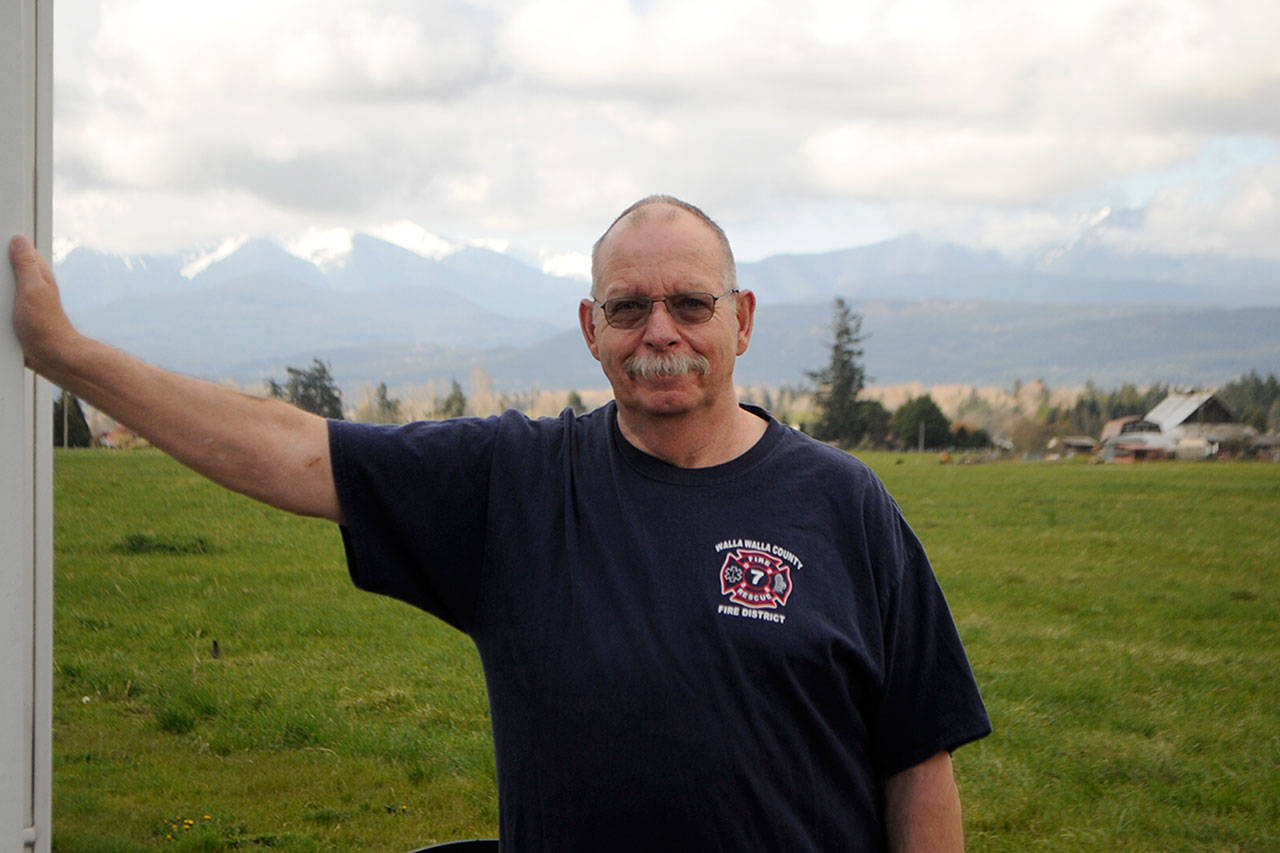Fred Banks finds he’s been at his best recently after months of struggling to catch his breath.
It’s been almost a year (April 16, 2020) since Banks received transplanted lungs at the University of Washington following a pulmonary fibrosis diagnosis.
“For the last month-and-a-half, I’ve just been able to talk more,” he said. “I used to stop to catch my breath all the time.”
Banks, a 66-year-old who said he hasn’t smoked in 45-plus years, said, “I didn’t think I would have lived much longer.
“I’ve always been optimistic looking towards this transplant,” he said. “Once recovered, I have just been ecstatic. From when I went into the hospital to now, I use no oxygen, so I feel real good.”
While the transplant saved his life, medical expenses cut significantly into the retired fireman and ranch hand’s simple livelihood.
Banks and his wife Berniece of 46 years live in a fifth wheel just west of Carlsborg living on a small fireman’s pension and Medicare.
With medications costing $400-$500 a month and paying off more than a month-long stay in the hospital and another three months in UW’s Transplant Housing, Banks said he’s “burned through savings.”
His family, including daughter Karie Banks Wellsandt, have sought to help offset her parents’ costs with ongoing raffles at fredbanksmedicalraffle.com and a gofundme at gofundme.com/f/fred-banks-medical-fund.
“Any and all help is appreciated and accepted,” Banks said.
Not allergies
For years, Banks said he was misdiagnosed with allergies starting around 2012 as he had a consistent dry hacking cough. In December 2018, he received the pulmonary fibrosis diagnosis, and in May 2019 he was rushed to Jefferson Healthcare and hospitalized a few weeks for a lack of oxygen.
In January 2020, he became eligible for a lung transplant.
“I felt this was my only chance because my oxygen use was going up more and more,” he said.
Four months later, Banks received the transplant.
Banks’ work resume includes about 20 years as a fireman in southeast Washington state, about seven years for a frozen foods company, and about 13 years as a ranch worker.
Banks said while working on a ranch early in his career he came in consistent close contact with toxic hazards that could have caused his condition.
“At that time, you don’t realize what it’s all about; and there was no respiratory protection,” he said. “I remember making a funny back then saying, ‘I won’t need penicillin.’”
Banks said smoking likely wasn’t a factor in his diagnosis because he quit as one of his promises to his then-future wife prior to them marrying.
For family
The Banks’ moved to Sequim to be close to family.
At the time, their granddaughter Jocelin (“Joss”) was battling acute lymphocytic leukemia in mid-February, but she is now cancer-free, Banks said.
The couple planned to buy a home after living in an RV to be closer to their daughter Amanda and her family, but with limited income Banks said they could only afford fixer-uppers.
However, those require a lot of energy and mold issues that aren’t conducive for Banks’ health.
Since his daughter started the fundraisers, Banks said he’s “received copious amounts of encouragement and some monetary assistance.”
His family has set goals to help offset costs for the rest of his life since he’ll be on many of the medications the remainder of his life, he said.
Since the transplant, Banks has set goals to exercise more and go on walks, go salmon fishing at least once this year, and maybe halibut fishing next year, too.
Key elements to his recovery was his faith in God since he was baptized in 2013, Banks said.
“Faith is a giant part of this,” he said. “I’ve had a lot of prayer to make it through.”
Banks said he’s unsure where his new lungs came from but he’s writing a letter through the hospital’s correspondence to thank the donor’s family.
“The medical staff at the University of Washington has been fantastic,” he said.
To support Banks in his financial recovery and security, visit fredbanksmedicalraffle.com and gofundme.com/f/fred-banks-medical-fund.



